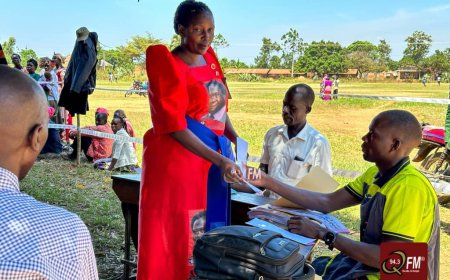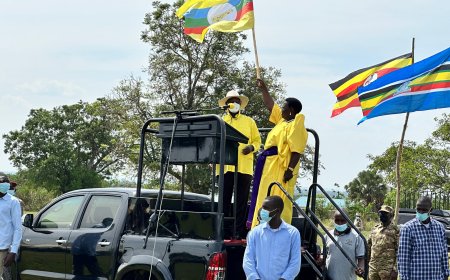Blood Bank in Lira: A Lifeline for the Lango Community
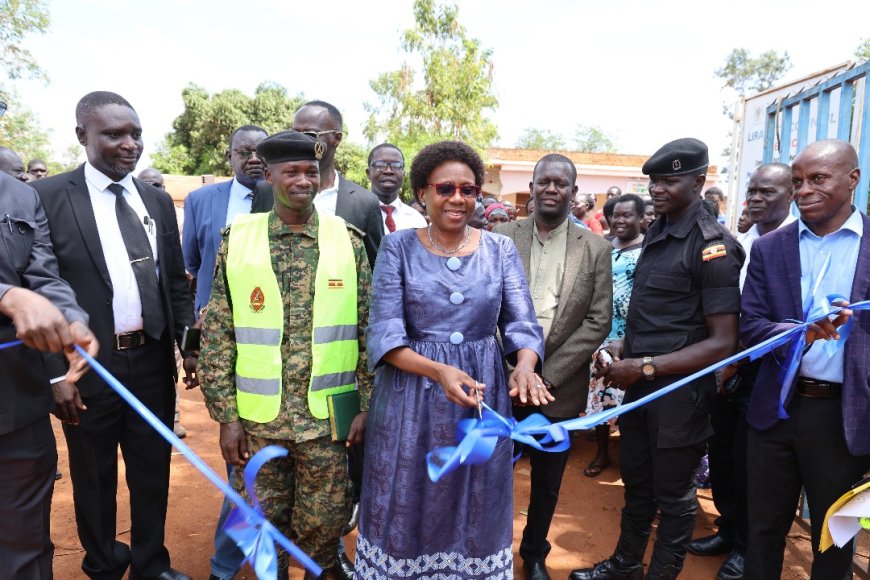
Lira City – In a groundbreaking development for healthcare in Northern Uganda, the Ugandan government, through the Ministry of Health, has launched the construction of a UGX 9.6 billion regional blood bank in Lira City.
This state-of-the-art facility is expected to revolutionize blood collection, storage, and distribution, improving emergency response and saving countless lives in the Lango sub-region and beyond.
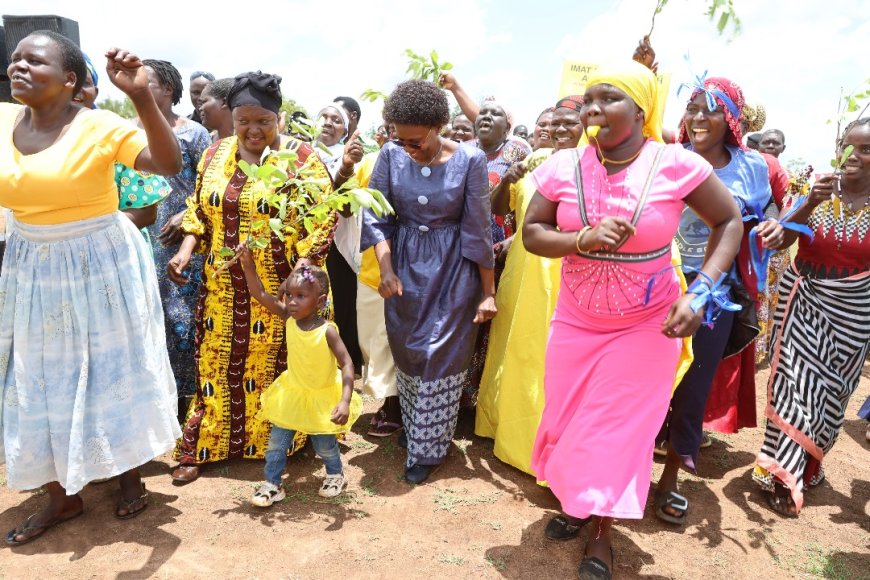
This long-overdue project will directly address the chronic blood shortages that have plagued hospitals in the region, particularly Lira Regional Referral Hospital (LRRH), which consumes more than half of the blood allocated to Lango. The facility, once completed, will ensure a steady, reliable supply of safe blood for medical procedures, reducing maternal mortality rates, surgical complications, and emergency deaths.
The project’s implementation is to be spearheaded by the Uganda People's Defence Forces (UPDF) Engineers Brigade, which will construct the facility with UGX 5.6 billion set aside for the building itself and UGX 4 billion allocated for the procurement of modern blood storage and processing equipment.
The facility is being constructed on a 20 acres of land generously provided by Lira University, a leading institution in healthcare and academic excellence in Lango.
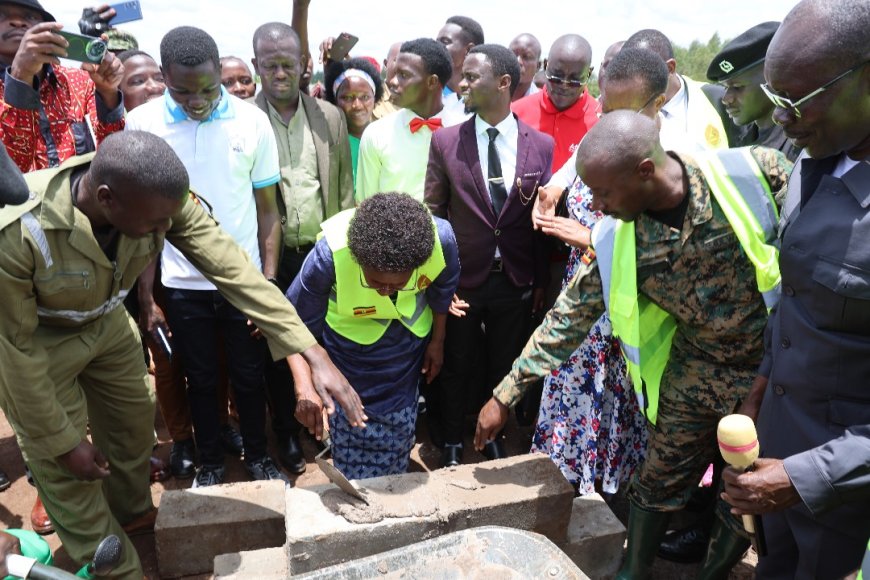
The groundbreaking ceremony on March 21, 2025, was presided over by Dr. Jane Ruth Aceng, Uganda’s Minister of Health and the Woman MP for Lira City.
Speaking at the event, Dr. Aceng emphasized the urgent need for a well-equipped blood bank in the region, stating that the facility would significantly boost emergency healthcare services and reduce reliance on blood banks in Kampala.
"This project is a game-changer for Northern Uganda," she remarked. "Timely access to blood will save thousands of lives, especially mothers facing complications during childbirth, accident victims, and patients requiring emergency surgeries."
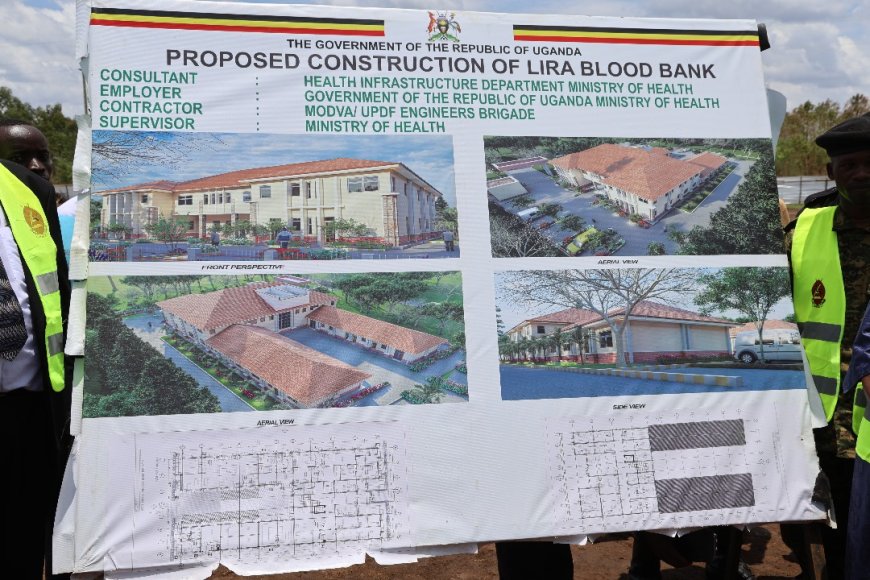
Dr. Aceng was joined by several senior health officials, including; Dr. Charles Olaro, Acting Director General, Ministry of Health, Dr. Dorothy Byabazeire, Director, Uganda Blood Transfusion Services (UBTS), Eng. George Otim, Commissioner of Health Infrastructure among others.
These officials reaffirmed the government’s commitment to strengthening Uganda’s healthcare system, ensuring that all regions receive equal access to life-saving medical resources.
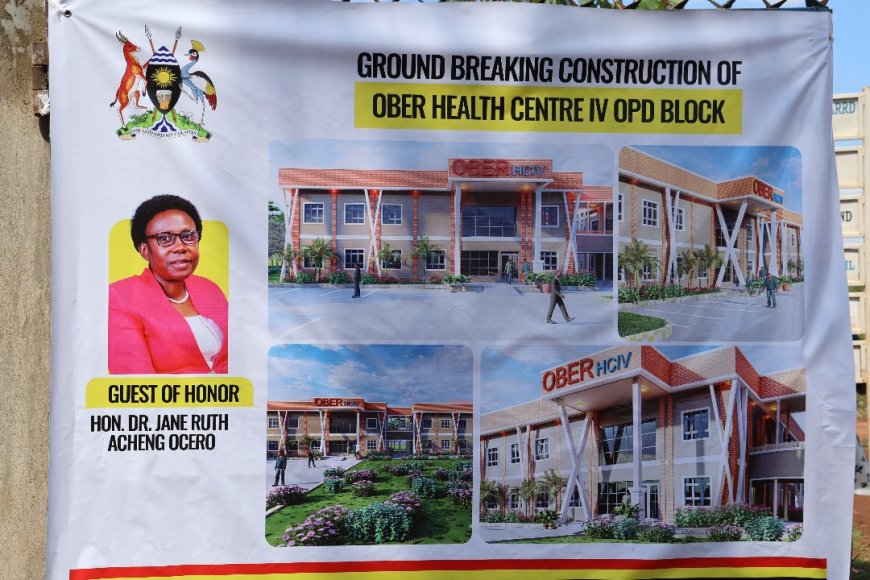
The construction of the Lira Blood Bank aligns with Lira University’s strategic plan of expanding medical infrastructure and providing cutting-edge healthcare services. Under the leadership of Vice Chancellor Prof. Ogwal Okeng, the university continues to position itself as a hub for academic excellence and public health advancements.
University Secretary Oyang Atubo highlighted Lira University’s generosity and foresight, as it allocated 20 acres of land for the blood bank four times the initial request by the Ministry of Health.
He reaffirmed the institution’s readiness to support national health programs, including potential collaborations for establishing a Heart Institute in the near future.

"Lira University is not just an academic institution; it is a transformative force for social change", Atubo stated.
"We are committed to ensuring that public institutions have the necessary land and infrastructure to serve the healthcare needs of our people", he added.
Despite the progress, the Vice Chancellor of Lira University Professor Jasper Ogwal-Okeng expressed concerns over the delayed tarmacking of the 24-kilometer road running across the university—a pledge made by President Yoweri Museveni.
He emphasized that the completion of this road is crucial for enhancing access to healthcare services, easing movement within the university, and facilitating the successful operation of the blood bank.
Meanwhile, Dr. Andrew Odur, Acting Director of Lira Regional Referral Hospital (LRRH), welcomed the blood bank’s construction as a lifeline for the region’s healthcare system. He noted that 56% of the blood allocated to Lango is consumed by LRRH, underscoring the critical need for a local, high-capacity blood bank.
"Currently, we struggle to meet the high demand for blood, leading to avoidable deaths," Dr. Odur explained.
"However, with this new facility, we will significantly reduce blood shortages, improving survival rates for patients in need of urgent transfusions", said Odur.
He also mobilized the Lango community to actively participate in blood donation drives, stressing that blood donation is an act of saving lives.
"Every unit of blood donated is a lifeline for someone in need," he urged. "I call upon our people to make regular blood donations part of their culture", Odur emphasised.
The construction of the Lira Blood Bank is under the management of the UPDF Engineers Brigade, known for its efficiency and adherence to quality standards. Maj. Kizito Mulwana, General Project Manager, assured stakeholders that the project would be completed on schedule and built to the highest standards.
"Our team is committed to delivering a world-class facility," he said. We will utilize local labor and source construction materials from the Lango region to support the local economy", said Mulwana
He further emphasized that the construction process itself would create jobs and provide economic opportunities for the Bar Apwo community and the broader Lango sub-region.
Lira City leaders, including Mayor Sam Atul, expressed full support for the blood bank project, recognizing it as a monumental step forward in the fight against healthcare challenges in Northern Uganda.
"This is one of the most important projects in our region's history. As Lira City Council, we will ensure that necessary infrastructure, such as road networks, is in place to support the facility", said Atul.
He referenced past challenges in the construction of health facilities in areas like Nambyeso, Akokoro, Anyeke, and Barjobi, where poor road conditions hindered service delivery. He vowed that the Lira Blood Bank would not face similar obstacles.
Resident City Commissioner Lawrence Emmy Egole plays a key oversight role in ensuring that government projects are implemented effectively.
Egole described Minister Aceng who is also the woman Member of Parliament for Lira City as a "Champion" of Healthcare Development noting that her leadership and dedication to improving healthcare in Uganda have attracted over UGX 9 billion in healthcare investments in Lango alone.
"Beyond the blood bank, she has also commissioned Ober health center 3 which is yet to be upgraded to health center 4 worth UGX 3.5 billion. These efforts are transforming Lango into a model region for accessible and quality healthcare services", RCC said.
According to Egole, healthcare infrastructure is a priority for this government affirming that the country's investments in setting up such institutions is to ensure that lives are saved and that all Ugandans, regardless of location, receive quality medical care.
"We are committed to ensuring that all development programs reach the grassroots. The success of the Lira Blood Bank is a direct reflection of government efforts to improve healthcare services across Uganda", Egole said.
The Lira Blood Bank is more than just a building, it represents hope, progress, and a commitment to saving lives. The facility will serve millions in Lango, Acholi, West Nile, and Karamoja, ensuring that hospitals no longer struggle with blood shortages.
Once completed, the blood bank will ensure timely access to safe blood for medical procedures, reduce maternal and infant mortality rates, strengthen Uganda’s healthcare infrastructure, provide economic opportunities through local job creation , and also position Lira as a leading medical hub in Northern Uganda.
As construction moves forward, the people of Lango look forward to a future where no life is lost due to blood shortages. With the combined efforts of the government, health officials, Lira University, and the local community, this facility is set to be a game-changer for Uganda’s healthcare system.
What's Your Reaction?









